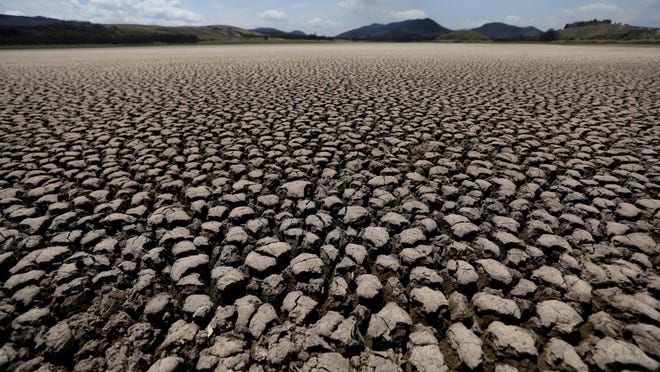DENVER – Your lawn may be the next climate change battleground. And parks. And playgrounds.
Regulators and clean-air advocates are increasingly eyeing the pollution emitted by small gasoline engines used to power lawn mowers and leaf blowers as they seek to blunt climate change. Environmentalists say using a commercial gas leaf blower for an hour produces emissions equal to driving from Denver to Los Angeles.
Among cities and states with bans or limits: California; Burlington, Vermont; and Washington, D.C. Vancouver, British Columbia, also has restrictions in place.
While many critics first attacked the small engines for the noise they make, experts say these small, two-stroke engines release shockingly large amounts of pollution – two problems that modern and increasingly affordable electric-powered equipment solves.
The absence of noisy leaf blowers is already being felt in Washington. “You used to hear them all day, everywhere you went. And now you don’t,” said Susan Orlins, who helped pass the district’s toughest-in-the-nation ban on gas-powered leaf blowers.
How does climate change affect you?: Subscribe to the weekly Climate Point newsletter
READ MORE: Latest climate change news from USA TODAY
What states and cities have moved to ban gas lawn equipment?
California has already taken the biggest step in banning the engines, which are formally known as “small off road engines,” or SOREs. California’s ban phases in next year and prohibits the sale of new small gas engines. People can keep using the ones they already own and can resell used ones.
Washington, D.C., has a much stricter ban, barring the use of gas-powered leaf blowers by anyone within the district as of Jan. 1, 2022, and levying $500 fines for violators, unless they’re on federal property. The ban also allows anyone who sees or hears a gas-powered leaf blower to file a complaint – they don’t need a city inspector to witness it.
Denver-area regulators are considering restrictions that primarily target large commercial and municipal users but provide exemptions for homeowners. The Denver-area ban is focused on reducing ozone pollution, which causes breathing difficulties and contributes to climate change.
The residential retail market is already responding, and most hardware and big-box stores now sell electric equipment.
“For the majority of residents who own single family homes, it’s going to be all electric, all day long,” said Daniel Mabe, founder and president of the American Green Zone Alliance. AGZA advises organizations and governments on best practices to adopt when transitioning to electric equipment but doesn’t take a position on bans or restrictions.
Why is gas lawn equipment being banned?
Experts say lawn and garden equipment represents about 85% of all SOREs in operation today nationally, and those engines are typically manufactured without the pollution controls used on cars.
NATURAL GAS:Appeals court overturns California city’s attempt to ban new natural gas hookups
GAS STOVE BANS EXPLAINED:Are natural gas stoves actually a ‘hazard’? Why are they suddenly controversial?
Virtually all small engines are two-stroke, which burn a dirtier fuel mix than vehicles do. Advocates say that in addition to the climate-changing emissions released by the engines, workers are exposed directly to their exhaust and rarely wear filters to protect their lungs.
Other people complain about the noise they make, especially when so many suburban residents now work from home.
“Transitioning to battery-powered landscaping equipment is a more sustainable alternative that would move us closer to meeting climate action goals and reduce harmful health effects,” said the California-based group San Diegans for Sustainable, Equitable & Quiet Equipment in Landscaping.
What’s the downside of electric lawn equipment?
Critics say battery-powered machines aren’t as strong as gas-powered ones, and some people also worry about having to buy new equipment, which is generally more expensive.
Mabe says someone starting a small landscaping business could buy the necessary gas-powered equipment for about $6,000, but the electric equivalents could cost three times that.
He adds that organizations switching to electrics will need more space to store and charge batteries and may also have to upgrade their electricity service to meet overnight charging demand.
Advocates say that having a big state like California switch to electric equipment will create a marketplace that international manufacturers can count on, lowering prices overall as other states and cities enact similar bans. Like the District of Columbia, California is giving grants to small businesses that replace gas-powered equipment with electric.
What if I want to keep my gas lawn mower or leaf blower?
Most existing proposals would only limit the sale of new gas-powered equipment, allowing people to keep using what they already own.
But clean-air advocates say the transition to electric equipment is inevitable as the United States works to limit emissions of greenhouse gases and air pollution. Orlins said she loaned her lawn care workers money so they could switch to battery-powered equipment.
“We decided we had to take that first step, and we are all so pleased,” she added.


